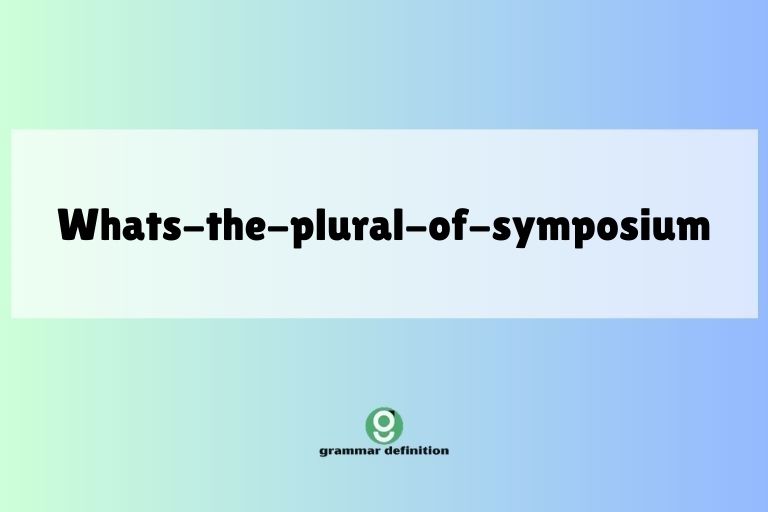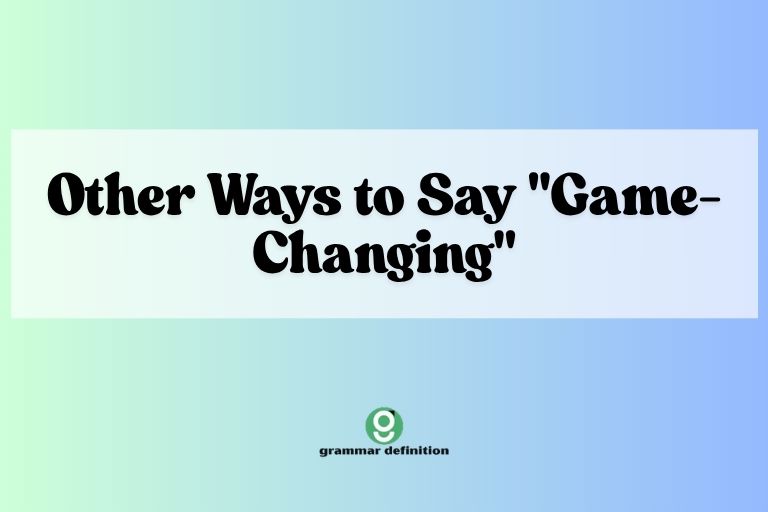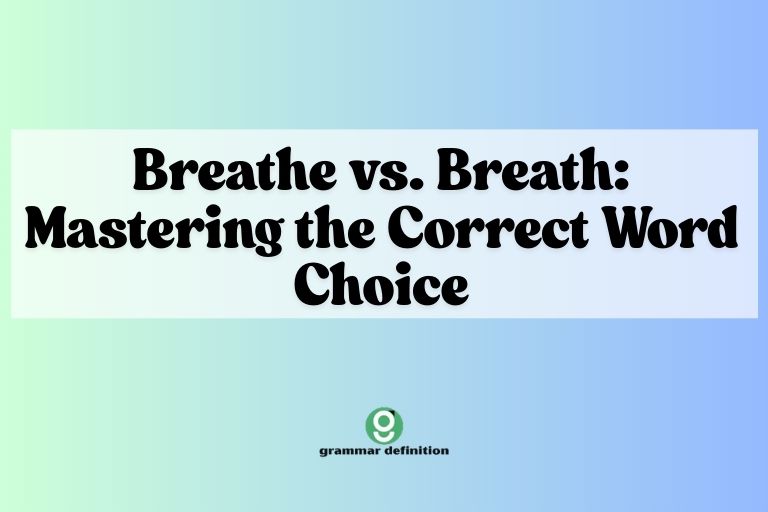What’s the Plural of Symposium? A Grammar Guide

Understanding how to form plurals is a fundamental aspect of English grammar. While most nouns simply add an “-s” to become plural, many words, especially those of foreign origin, follow different rules.
One such word is “symposium.” Knowing the correct plural form of “symposium” and the reasons behind it can enhance your writing accuracy and overall command of the English language. This article will explore the pluralization of “symposium” in detail, covering its definition, structural breakdown, usage rules, common mistakes, and more.
This guide is perfect for English language learners, students, writers, and anyone interested in improving their grammatical precision.
This article will cover the various aspects of pluralizing “symposium,” providing detailed explanations, examples, and practice exercises to ensure a thorough understanding. Whether you’re a beginner or an advanced learner, this guide will equip you with the knowledge and skills to use the plural form of “symposium” correctly in any context.
Table of Contents
- Definition of Symposium
- Structural Breakdown
- Types or Categories (N/A)
- Examples of Symposium and Symposia
- Usage Rules
- Common Mistakes
- Practice Exercises
- Advanced Topics
- FAQ
- Conclusion
Definition of Symposium
A symposium (singular) is a formal meeting or conference at which experts discuss a particular topic. The term originates from ancient Greece, where it referred to a drinking party or convivial discussion following a banquet. In modern usage, a symposium is typically an academic or professional event focused on exchanging ideas and presenting research.
The word “symposium” is a noun. Its primary function is to name an event where experts gather to discuss a specific subject.
It can be used in various contexts, including academic, scientific, and professional settings. For example, “The university hosted a symposium on climate change.”
The plural form of “symposium” is symposia. This pluralization follows the pattern of many words derived from Greek or Latin, where the “-um” ending changes to “-a” in the plural form. Understanding this pattern helps in correctly pluralizing other similar words.
Structural Breakdown
The word “symposium” comes from the Greek word symposion (συμπόσιον), which literally means “drinking party.” The suffix “-ium” is common in Latin and Greek words, often denoting a place or activity. In English, this suffix has been adopted into many words, such as “auditorium,” “stadium,” and “aquarium.”
The pluralization rule for words ending in “-um” that are of Latin or Greek origin is to change the “-um” to “-a.” This rule applies to words like “curriculum” (plural: curricula), “datum” (plural: data), and “medium” (plural: media). The reason behind this rule lies in the grammatical structures of Latin and Greek, where “-a” is a common plural ending for neuter nouns.
While English has adopted these words, it often retains their original pluralization rules.
Here’s a breakdown of the structural change:
- Singular: symposium (ends in -um)
- Plural: symposia (ends in -a)
This structural change is consistent across many words of similar origin, making it a predictable rule to learn and apply.
Types or Categories (N/A)
The word “symposium” doesn’t have different types or categories in the grammatical sense. It primarily refers to a single type of event: a formal meeting or conference where experts discuss a particular topic.
However, symposia can vary significantly in terms of subject matter, format, and intended audience. They can range from small, informal gatherings to large, international conferences.
While the term itself doesn’t change, the context in which it’s used can vary widely. A symposium can be focused on scientific research, artistic expression, political debate, or any other area of knowledge.
The key element is the formal exchange of ideas among experts.
Examples of Symposium and Symposia
Understanding how to use “symposium” and “symposia” correctly requires seeing them in context. The following tables provide numerous examples of both singular and plural forms used in sentences.
Singular Form: Symposium
The following table provides 30 examples of the word “symposium” used in sentences.
| # | Example Sentence |
|---|---|
| 1 | The university hosted a symposium on renewable energy. |
| 2 | I attended a symposium on artificial intelligence last year. |
| 3 | The symposium featured several keynote speakers. |
| 4 | He presented his research at the annual symposium. |
| 5 | The symposium was well-attended by experts in the field. |
| 6 | The symposium’s theme was “The Future of Technology.” |
| 7 | She organized a symposium on women in science. |
| 8 | The symposium provided a platform for new ideas. |
| 9 | The opening session of the symposium was particularly insightful. |
| 10 | Each participant received a program for the symposium. |
| 11 | The symposium will take place in the main auditorium. |
| 12 | He is scheduled to speak at the upcoming symposium. |
| 13 | The symposium aims to address critical issues in healthcare. |
| 14 | The symposium included a workshop on data analysis. |
| 15 | The symposium concluded with a panel discussion. |
| 16 | The international symposium attracted researchers from around the globe. |
| 17 | The symposium was sponsored by several major corporations. |
| 18 | The organizers are planning a symposium on sustainable development. |
| 19 | The symposium focused on the latest advancements in medicine. |
| 20 | The keynote speaker at the symposium was a Nobel laureate. |
| 21 | I found the symposium to be very informative and engaging. |
| 22 | The symposium provided valuable networking opportunities. |
| 23 | The symposium featured poster sessions and oral presentations. |
| 24 | The symposium’s proceedings will be published in a special journal issue. |
| 25 | The symposium offered a unique perspective on the issue. |
| 26 | Attending the symposium broadened my understanding of the subject. |
| 27 | The symposium was followed by a reception. |
| 28 | The symposium provided a forum for debate. |
| 29 | The symposium included a Q&A session with the speakers. |
| 30 | The symposium was a great success. |
Plural Form: Symposia
The following table provides 30 examples of the word “symposia” used in sentences.
| # | Example Sentence |
|---|---|
| 1 | Several symposia were held on different aspects of the topic. |
| 2 | The organization hosts annual symposia on environmental issues. |
| 3 | We attended several symposia during the conference. |
| 4 | The symposia covered a wide range of subjects. |
| 5 | These symposia are designed to promote interdisciplinary collaboration. |
| 6 | The university organizes many symposia each year. |
| 7 | The symposia provided valuable insights into current research. |
| 8 | The proceedings of the symposia were published online. |
| 9 | Many international symposia focus on global challenges. |
| 10 | The symposia brought together experts from various fields. |
| 11 | The upcoming symposia promise to be very informative. |
| 12 | She presented her findings at multiple symposia. |
| 13 | The symposia are often held in different locations. |
| 14 | The symposia addressed various aspects of the problem. |
| 15 | The symposia concluded with closing remarks from the organizers. |
| 16 | The international symposia attracted a diverse audience. |
| 17 | The symposia were sponsored by several research institutions. |
| 18 | The organizers are planning several symposia for the next year. |
| 19 | The symposia focused on the latest technological innovations. |
| 20 | The keynote speakers at the symposia were highly respected. |
| 21 | We found the symposia to be very beneficial for our research. |
| 22 | The symposia offered unique networking opportunities. |
| 23 | The symposia featured both poster sessions and oral presentations. |
| 24 | The symposia’s proceedings will be available to all participants. |
| 25 | The symposia offered a wide range of perspectives on the issue. |
| 26 | Attending the symposia deepened our understanding of the subject matter. |
| 27 | The symposia were followed by informal discussions. |
| 28 | The symposia provided a platform for collaborative research. |
| 29 | The symposia included interactive workshops and seminars. |
| 30 | The symposia were a resounding success. |
Using “Symposium” and “Symposia” in Comparative Sentences
The following table illustrates the contrast between the singular and plural forms in similar contexts.
| # | Singular (Symposium) | Plural (Symposia) |
|---|---|---|
| 1 | The main symposium addressed climate change. | The symposia addressed various environmental concerns. |
| 2 | He presented his paper at the symposium. | He presented his papers at several symposia. |
| 3 | The symposium was held in the auditorium. | The symposia were held in different locations across the campus. |
| 4 | She organized a symposium on women’s health. | She organized a series of symposia on public health issues. |
| 5 | The symposium provided a forum for discussion. | The symposia provided multiple forums for debate and collaboration. |
| 6 | The symposium is scheduled for next week. | The symposia are scheduled throughout the year. |
| 7 | The symposium aims to promote innovation. | The symposia aim to promote innovation in various fields. |
| 8 | The symposium included a keynote speech. | The symposia included several keynote speeches. |
| 9 | The symposium concluded with a closing ceremony. | The symposia concluded with a summary of key findings. |
| 10 | The international symposium attracted many participants. | The international symposia attracted participants from around the world. |
| 11 | The symposium was sponsored by a local business. | The symposia were sponsored by several major corporations. |
| 12 | The organizers are planning a symposium for next year. | The organizers are planning multiple symposia for the upcoming year. |
| 13 | The symposium focused on new research methods. | The symposia focused on different aspects of research methodology. |
| 14 | The keynote speaker at the symposium was very engaging. | The keynote speakers at the symposia were all experts in their fields. |
| 15 | I found the symposium to be very informative. | We found the symposia to be very beneficial for our professional development. |
| 16 | The symposium offered valuable networking opportunities. | The symposia offered numerous opportunities for networking and collaboration. |
| 17 | The symposium featured a poster session. | The symposia featured a variety of poster sessions. |
| 18 | The symposium’s proceedings will be published soon. | The symposia’s proceedings will be compiled into a single volume. |
| 19 | The symposium offered a unique perspective on the issue. | The symposia offered a range of perspectives on the same issue. |
| 20 | Attending the symposium broadened my understanding. | Attending the symposia broadened our collective understanding. |
| 21 | The symposium was followed by a dinner reception. | The symposia were followed by informal gatherings. |
| 22 | The symposium provided a platform for young researchers. | The symposia provided platforms for researchers at all career stages. |
| 23 | The symposium included a Q&A session. | The symposia included a series of Q&A sessions. |
| 24 | The symposium was a great learning experience. | The symposia were all valuable learning experiences. |
| 25 | The symposium highlighted the latest trends. | The symposia highlighted various emerging trends. |
| 26 | The symposium required months of preparation. | The symposia required extensive planning and coordination. |
| 27 | The symposium addressed a specific challenge. | The symposia addressed a range of related challenges. |
| 28 | The symposium featured presentations from experts. | The symposia featured presentations from leading experts. |
| 29 | The symposium had a significant impact on the field. | The symposia had a lasting impact on the community. |
| 30 | The symposium was deemed a success by all attendees. | The symposia were deemed successful by all participants. |
Usage Rules
The primary rule for using “symposium” and “symposia” is to use the singular form when referring to one event and the plural form when referring to multiple events. This is a straightforward application of English grammar rules for nouns.
Rule 1: Singular Form
Use “symposium” when referring to a single meeting or conference. For example:
- “The annual symposium on astrophysics will be held next month.”
Rule 2: Plural Form
Use “symposia” when referring to more than one meeting or conference. For example:
- “The university hosts several symposia each year on various topics.”
Rule 3: Consistency
Maintain consistency in your writing by using the correct form throughout your text. If you start by referring to “symposia,” continue to use the plural form when discussing multiple events.
Rule 4: Formal vs. Informal Contexts
While “symposia” is the grammatically correct plural form, in some informal contexts, you might hear “symposiums.” However, it’s generally best to stick with “symposia” in formal writing and academic settings to maintain a professional tone.
Common Mistakes
One of the most common mistakes is using “symposiums” as the plural form. While this might sound natural to some, it’s grammatically incorrect.
The correct plural form is “symposia.”
Another common mistake is using “symposium” when referring to multiple events. This error can lead to confusion and a lack of clarity in your writing.
Here are some examples of common mistakes and their corrections:
| Incorrect | Correct | Explanation |
|---|---|---|
| We attended two symposiums last year. | We attended two symposia last year. | “Symposiums” is an incorrect pluralization. |
| The university is hosting several symposium this year. | The university is hosting several symposia this year. | The plural form “symposia” should be used with “several.” |
| Each symposium cover different topic areas. | Each symposium covers a different topic area. | “Symposium” is singular, so the verb should be “covers.” |
| The symposia was very informative. | The symposia were very informative. | “Symposia” is plural, so the verb should be “were.” |
Practice Exercises
Test your understanding of “symposium” and “symposia” with the following exercises. Fill in the blanks with the correct form of the word.
Exercise 1: Fill in the Blanks
Choose the correct form (symposium or symposia) for each sentence.
| # | Sentence | Answer |
|---|---|---|
| 1 | The annual ______ on climate change will be held next month. | |
| 2 | The university hosts several ______ each year. | |
| 3 | I presented my research at a recent ______. | |
| 4 | These ______ are designed to promote collaboration. | |
| 5 | The ______ featured keynote speakers from around the world. | |
| 6 | The organizers are planning multiple ______ for the next year. | |
| 7 | Each ______ focuses on a specific area of research. | |
| 8 | The ______ proceedings will be published in a special issue. | |
| 9 | We attended several ______ during the conference. | |
| 10 | The international ______ attracted a diverse audience. |
Answer Key:
| # | Answer |
|---|---|
| 1 | symposium |
| 2 | symposia |
| 3 | symposium |
| 4 | symposia |
| 5 | symposium |
| 6 | symposia |
| 7 | symposium |
| 8 | symposium |
| 9 | symposia |
| 10 | symposium |
Exercise 2: Correct the Errors
Identify and correct the errors in the following sentences.
| # | Sentence | Corrected Sentence |
|---|---|---|
| 1 | The university hosted three symposiums last year. | |
| 2 | I am organizing a symposium on renewable energy. | |
| 3 | The symposia was very informative and engaging. | |
| 4 | We will attend the annual symposiums in July. | |
| 5 | The next symposium are scheduled for November. | |
| 6 | She presented at several symposium. | |
| 7 | The international symposiums attracted experts from all over the world. | |
| 8 | The university always hosts at least one symposiums each academic year. | |
| 9 | These symposium is known for its innovative approach. | |
| 10 | The symposia includes workshops and panel discussions. |
Answer Key:
| # | Corrected Sentence |
|---|---|
| 1 | The university hosted three symposia last year. |
| 2 | I am organizing a symposium on renewable energy. (No error) |
| 3 | The symposia were very informative and engaging. |
| 4 | We will attend the annual symposia in July. |
| 5 | The next symposia are scheduled for November. |
| 6 | She presented at several symposia. |
| 7 | The international symposia attracted experts from all over the world. |
| 8 | The university always hosts at least one symposium each academic year. |
| 9 | This symposium is known for its innovative approach. |
| 10 | The symposia include workshops and panel discussions. |
Exercise 3: Sentence Completion
Complete the following sentences using either “symposium” or “symposia” in the most appropriate way.
| # | Sentence | Possible Answer |
|---|---|---|
| 1 | After attending several ______, I gained a deeper understanding of the topic. | |
| 2 | The ______ focused primarily on the challenges of climate change. | |
| 3 | The university decided to organize a series of ______ to cover various aspects of the issue. | |
| 4 | Each year, the ______ brings together leading experts from around the globe. | |
| 5 | The ______ provided a unique platform for young researchers to present their work. | |
| 6 | Attending these ______ is essential for keeping up with the latest developments in the field. | |
| 7 | Next month’s ______ will address the critical challenges in healthcare. | |
| 8 | The ______ were followed by informal networking sessions. | |
| 9 | The ______ highlighted the importance of interdisciplinary collaboration. | |
| 10 | The organizing committee is diligently planning the upcoming ______. |
Possible Answers:
| # | Possible Answer |
|---|---|
| 1 | symposia |
| 2 | symposium |
| 3 | symposia |
| 4 | symposium |
| 5 | symposium |
| 6 | symposia |
| 7 | symposium |
| 8 | symposia |
| 9 | symposium |
| 10 | symposium |
Advanced Topics
For advanced learners, it’s useful to understand the historical context and nuances of the word “symposium.” As mentioned earlier, the term originates from ancient Greece, where it had a different connotation. The original Greek symposion was a drinking party or a gathering following a banquet, often featuring music, poetry, and philosophical discussions. Plato’s “Symposium” is a famous example of this type of gathering, showcasing intellectual debates and discussions on love and beauty.
In modern usage, while the focus is on formal academic or professional discussions, the underlying idea of bringing people together to exchange ideas remains. Understanding this historical context can enrich your understanding and appreciation of the word.
Another advanced topic is the use of “symposium” as part of a larger compound noun or phrase. For example, “symposium proceedings” refers to the published record of presentations and discussions from a symposium.
Similarly, “symposium organizer” refers to the person or team responsible for planning and managing a symposium.
FAQ
Q1: Is “symposiums” ever correct?
No, “symposiums” is not a grammatically correct plural form. The correct plural form is “symposia.” While you might hear “symposiums” in informal contexts, it’s best to avoid it in formal writing and academic settings.
Q2: Why is the plural of “symposium” “symposia”?
The pluralization of “symposium” to “symposia” follows the pattern of many words derived from Greek or Latin. In these languages, nouns ending in “-um” often change to “-a” in the plural form.
This rule has been retained in English for many such words.
Q3: Can I use “symposium” to refer to multiple events in informal speech?
While it might be understood in informal speech, it’s grammatically incorrect. To maintain clarity and accuracy, it’s always better to use the correct plural form, “symposia,” even in informal contexts.
Q4: How do I remember that the plural of “symposium” is “symposia”?
One way to remember it is to associate it with other similar words like “curriculum” (plural: curricula) and “datum” (plural: data). Recognizing the pattern can help you recall the correct plural form.
Q5: Is “symposia” only used in academic or professional contexts?
While “symposia” is commonly used in academic and professional settings, it can be used in any context where you need to refer to multiple symposia. The key is to use it correctly whenever you are referring to more than one event of this type.
Q6: What are some other words that follow the same pluralization rule as “symposium”?
Several other words follow the same pluralization rule, including:
- Curriculum (plural: curricula)
- Datum (plural: data)
- Medium (plural: media)
- Memorandum (plural: memoranda)
Q7: What is the difference between a symposium and a conference?
While the terms are often used interchangeably, a symposium typically implies a more focused and specialized discussion on a specific topic, often involving experts in the field. A conference can be broader, encompassing a wider range of topics and participants, and may include various activities such as workshops, presentations, and networking events.
A symposium is often a subset or a specific type of event within a larger conference.
Q8: How should I cite information presented at symposia in academic writing?
When citing information presented at symposia, follow the citation style required by your institution or publication (e.g., APA, MLA, Chicago). Include the author(s) of the presentation, the title of the presentation, the name of the symposium, the date of the symposium, and the location.
If the symposium proceedings are published, cite the publication accordingly. For unpublished presentations, indicate that it was a presentation at a symposium.
Conclusion
Understanding the correct plural form of “symposium” is essential for accurate and effective communication. The plural form is “symposia,” following the grammatical rules for words of Greek or Latin origin ending in “-um.” Avoiding common mistakes, such as using “symposiums,” will enhance your writing and speaking skills.
By mastering the usage rules and practicing with examples, you can confidently use “symposium” and “symposia” in various contexts. Remember to maintain consistency and use the correct form throughout your writing.
With this knowledge, you’re well-equipped to engage in academic and professional discussions with greater precision and clarity.
Continue to practice and explore other grammar rules to further improve your English language skills. Consistent effort and attention to detail will help you become a more proficient and confident communicator.






